By Adel Medic, EAA 1514652
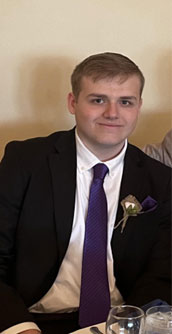 I take off from Burlington, Vermont’s largest airport (KBTV) on a sunny, windy day in June for my discovery flight. I look out the window of the Cessna 172 and don’t recognize the place where I had spent the first 17 years of my life. With the roar of the F-35s that just departed ahead of us still in my head, I recall the fond memory of my 10-year-old self sitting on the hood of my dad’s blue truck parked just outside the airport gate. My thoughts flow back to the time when my parents took me to watch Vermont’s F-16 all-weather tactical fighter jets do touch-and-goes. For some refugee families, the roaring engines of these sophisticated aircraft may trigger memories of war and trauma, but for my parents, they are the sound of “freedom.”
I take off from Burlington, Vermont’s largest airport (KBTV) on a sunny, windy day in June for my discovery flight. I look out the window of the Cessna 172 and don’t recognize the place where I had spent the first 17 years of my life. With the roar of the F-35s that just departed ahead of us still in my head, I recall the fond memory of my 10-year-old self sitting on the hood of my dad’s blue truck parked just outside the airport gate. My thoughts flow back to the time when my parents took me to watch Vermont’s F-16 all-weather tactical fighter jets do touch-and-goes. For some refugee families, the roaring engines of these sophisticated aircraft may trigger memories of war and trauma, but for my parents, they are the sound of “freedom.”
As the first generation in the United States born of Bosnian refugees, my parents instilled in me two important qualities: to be the best that I can possibly be, and always help others in need. As teenagers, my mother and her brother fled to the United States with only $24 in their pockets, escaping war and genocide, seeking one thing: safety. As I look out at the city of Burlington, with the beautiful Green Mountains providing a backdrop to the place I know as home, I have a hard time imagining what it would be like to suddenly have to leave this peaceful place of safety.
My mother remembers her Majka pedaling furiously alongside the bus that was taking her eldest and only teenage daughter from their homeland, wondering, as she looked in her eyes, if they would ever see one another again. My father left Bosnia a couple of years before my mom, when his family woke one morning to tanks rolling into the valley below their hillside home. Terrified, they removed the chicken and bread they were preparing for their midday meal from the oven, packed up what they could, and headed out on foot to traverse the Mala Golija mountain range from Glamoc to Croatia. I am in awe of the strength that my then-teenage father must have had to carry his little sister on his back while his parents lugged the only belongings that would fit in a few sacks. I have so much respect for his resiliency, which he passed down to me.
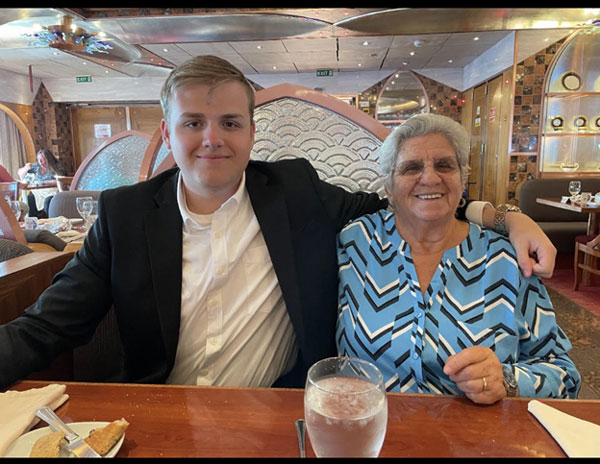
Before taking this discovery flight, I had only seen our home from the ground. As I take in the place where I was born, my parents’ sanctuary, the building where I went to school, the bay where I learned to swim, all from this new perspective, I realize the endless opportunities that my parents made possible for both me and my sister. With security in place, she and I were given the gift of being able to dream, which was something my parents never got the chance to experience for themselves because they were focused mainly on survival. The sheer awe of seeing my home in this way changed me, changed my perspective on my world and my place in this world. This discovery flight was truly a discovery — it connected my past with my present and seeded possibilities for my future.
Early on in my training, my instructor and former Ray scholar Kyra Becker, EAA 1412207, had me practice turns around a point and other safety maneuvers over Lake Champlain that took me by surprise. For the first time, I experienced gravity and g-forces in a way I had never before. With more and more flights, sensations became familiar and something I started to look forward to in my training. So much about being a pilot requires preparation for eventual emergencies. We practice safety procedures day in and day out — training for inevitable failures — to automate our responses for when there is no time for delayed reaction.
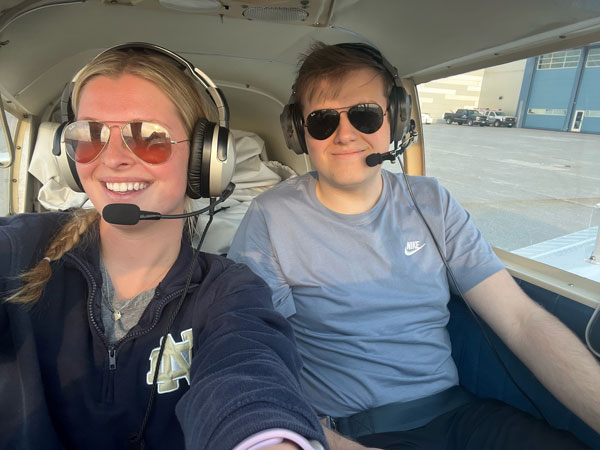
Flight training is about making mistakes and feeling the immediate effect that over controlling the rudder or elevator has on attitude or altitude. Some days I would go home and lament to my folks about how frustrating it was to still be struggling with landings or take-offs, yet all this practice built my confidence. I could not give up. I would not give up. I was committed. I realized that a perfectionist lives within me and that I had to give myself a little grace with this learning process, which was humbling, but has made me a better human both in and out of the aircraft. Mike Tyson said, “Any man can do what he has to do. But doing it like you love it? That is what takes it to a whole different level. A champion does it like he loves it, even when he doesn’t.”
With the gift of being able to craft an aviation dream, afforded to me by my parents’ sacrifices, I spent a great deal of time exploring the many paths into the aviation workforce. Inspired by the Air Force and Air National Guard and also by being a business jet pilot, I explored what it would take to get a private pilot certificate and learned that it is very expensive. With parents having to leave nearly every worldly possession behind, we initially thought we may not have the means to support my dream. We come from humble means. My mother works as a victims advocate for the Vermont Attorney General’s office; she has devoted her entire life to helping victims of violent crimes, including domestic and sexual. My father works for Pepsi as a truck driver with a brutal schedule that often includes working 14-hour shifts. Winters especially are bad for him considering he works mainly outside delivering these products.
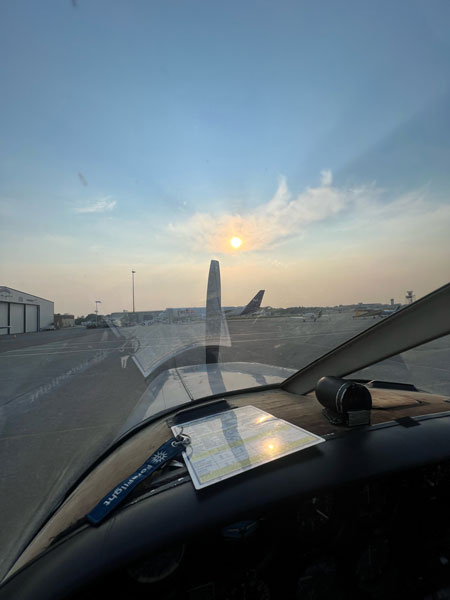
A little luck and several conversations led us to EAA Chapter 613, who immediately took us under their wing. With our family savings of $2,000, I started flying lessons with Kyra, who was the chapter’s first Ray scholar and now is a flight instructor. I did not know what to expect since it was my first time flying in an airplane, but it was immediately apparent that I had to pursue aviation for the rest of my life no matter what. I had to make a career for myself in aviation. I was also certain that I had to become an instructor, which would enable me to give back to our community by helping kids and others achieve their goals like my instructor does for me and others. In short, I want to be like Kyra; she is kind, knowledgeable and supportive — she is a great mentor.
From day one, EAA Chapter 613 has felt like a family. The moment we walked into this fold of aviators, we belonged. Our family would not be able to lift me up to my aviation dream if it wasn’t for EAA Chapter 613’s youth aviation coordinator, Beth White, who has been a guide, a mentor, and someone who has reassured us every step of the way. My family considers Beth a friend for life. After volunteering at a couple of pancake breakfasts, we learned that the chapter nominated me to apply for the incredible opportunity to be one of their prestigious Ray scholars.
It is hard to put into words how much getting the Ray Foundation Scholarship means to me and my family. It has launched me on the path to a future career in aviation, which has been my most important goal, my dream. This scholarship will enable me to complete my private pilot certificate, which will set me up to attend Vermont Technical College’s professional pilot program. I see myself becoming a private jet pilot, a mechanic, and serving in the United States Air Force, which would simultaneously enable me to live the life of my dreams while being able to give back to our greater community.
As I look down at this beautiful community nestled in the heart of the Champlain Valley, I have gratitude for the welcoming citizens of the United States who opened their arms to my parents, offered them safety and housing, helped them get jobs, and provided the stability needed for them to become thriving adults. I am excited for the future where I am a pilot and an instructor and can give back to the children of the people that provided so much for my family. I am excited for the opportunity to be trained so that I can share the skies with youngsters who have similar aviation dreams, who may be sitting on the hoods of their father’s trucks watching me take off.
